The Islamic Hygienical Jurisprudence (Fiqh al-Ṭahārah): A Foundation for Sustainability Discourses
Is cleanliness (ṭahārah) a cornerstone in Islam? Why does a Muslim need to repeat wuḍū’ multiple times every day? How does one purify themselves from a seminally defiled state through bathing? What is the purpose behind the stringent rulings related to ṭahārah? These are among the questions that may arise for anyone who reflects on the extensive rulings of Islamic hygienical jurisprudence (fiqh al-Ṭahārah). After explaining the rulings related to wuḍū’ and tayammum (dry ablution) in the verse al-Mā’idah: 6, Allah says: “God does not want to impose any hardship on you, but wants to make you pure, and to bestow upon you the full measure of His blessings, so that you might have cause to be grateful.” Hints of answers to these questions can be found in this verse.
Firstly, the rulings of ṭahārah are meant to uphold purity on both individual and social levels. Secondly, they aim to seek the pleasure of the Almighty, the ultimate goal of a Muslim in both this world and the hereafter. Thirdly, they are not a burden but rather an extension of Allah's mercy towards His servants, a perspective that becomes evident upon deeper reflection.
In connection with the United Nations’ Sustainable Development Goals (SDGs), Islamic rulings on cleanliness contribute significantly to Goal 3: Good Health and Well-Being. By emphasizing personal and communal hygiene, the practices of wuḍū’, ghusl, and other aspects of ṭahārah reduce the risk of disease transmission, promote physical health, and ensure a clean environment, which aligns with global efforts to improve health and hygiene standards worldwide.
Cleanliness in Islamic Jurisprudence
Cleanliness is regarded as a key and integral part of worship, serving as a constant reminder of the thorough external and internal purity required in a Muslim's life. Several spiritual, social, and medical implications are embedded within the broader concept of ṭahārah. For instance, a significant spiritual implication of wuḍūʾ is beautifully captured in the following hadith:
"When a Muslim washes his face in ablution, every sin that he committed with his eyes will be washed away with the last drop of water. When he washes his hands, every sin he committed with his hands will be washed away with the last drop of water. When he washes his feet, every sin that he committed with his feet will be washed away with the last drop of water, until he emerges purified from sin" (Ṣaḥīḥ Muslim: 244).
In light of this hadith, wuḍūʾ not only cleanses the physical organs but also serves as a spiritual purification, washing away the sins committed by those organs. This duality underscores the depth of ṭahārah in Islam, blending tangible hygiene with inner moral refinement, thereby nurturing both body and soul.
In the ruling that prohibits going to the masjid for jamāʿah prayer after eating garlic or onion, we can see the aspect of ṭahārah in dealing with fellow beings (al-Bukhārī: 5452). By this concern for oral hygiene, Islam takes the seemingly insignificant harm of bad breath to fellow people into account and prohibits it at the cost of missing the reward of congregational prayer in the masjid. Here, the notion of ṭahārah moves beyond individual duty to emphasize its obligation in social interactions. Additionally, Islam encourages using perfume at various times, including when going to the masjid for jamāʿah.
In the interest of medical benefits, several rulings in fiqh al-ṭahārah demonstrate a relationship between Prophetic practices and modern health principles, such as the sunnah of brushing teeth and maintaining oral hygiene, or regular handwashing and its role in preventing communicable diseases.
This emphasis on hygiene and public health aligns with the United Nations Sustainable Development Goals (SDGs), particularly Goal 3, which seeks to ensure healthy lives and promote well-being for all.
The notion of cleanliness is placed in a hierarchical structure. It starts from the purification of oneself and surroundings from physical and ritual impurities (najas wa ḥadath), which is the subject matter of fiqh al-Ṭahārah. The next step is to abstain from all types of major and minor sins, and the subsequent level is cleansing the heart from all evil thoughts and indecent inclinations. The final layer focuses on sanitizing the soul from everything except Allah, a position of the closest servants of Allah in which they profoundly immerse in the uncorrupted submission to the Almighty.
Given the first step, fiqh al-Ṭahārah is promoted as an opening chapter in most juristic texts, offering detailed and pragmatic guidelines for leading a clean life in a holistic paradigm. Fiqh al-Ṭahārah encompasses sub-chapters such as (1) different kinds of water, (2) the utensils used to keep water in, (3) items that could be mixed with water, (4) wuḍū’, (5) tayammum, (6) ghusl (bath), (7) menstruation, (8) dietary laws and (9) toilet etiquette.
The guidelines in fiqh al-ṭahārah align with several Sustainable Development Goals (SDGs), particularly Goals 3, 6, and 12. Practices such as wuḍū’, ghusl, and dietary laws promote good health and well-being (Goal 3) by emphasizing hygiene and disease prevention, paralleling modern public health strategies. The focus on water purity and sanitation reflects the importance of clean water and responsible usage (Goal 6), while dietary laws and guidance on resource use encourage sustainable consumption and reduced waste (Goal 12). These principles highlight how fiqh al-ṭahārah contributes to fostering health-conscious, sustainable, and environmentally responsible communities.
Ḥadath (state of ritual impurity) is divided into two: (1) major such as sexual relation and menstruation, which requires ghusl (ritual bath), and (2) minor such as urine, defecation and passing wind, which requires wuḍū’. Ṭahārah is achieved through mainly ablution which is of three types: partial ablution (wuḍū’), complete ablution (ghusl) and dry ablution (tayammum). There are situations in which one or more of them becomes obligatory, and at times they are counted as recommended. Three kinds of najas (physical filth) are as follows: (1) Mughallaẓah, which means najas of dog and pig, and its cleansing is seven times of washing, one of which must be from water which contains sand, clay or soil. (2) Mukhaffafah, which means the urine of an infant boy under two years of age who feeds only on milk. Its cleansing is after removing the substance of the najas, sprinkling of water on the area of the najas. (3) Mutawassiṭah, which means all impure things excluding the two mentioned above, and its cleansing is basically by water until the colour, taste and smell of najas are gone.
Water is the primary purifier of ḥadath and najas. Allah says, "We send down purifying water from the sky" (al-Furqān: 25). If water is not available or cannot be used, the next option is soil, i.e., dry ablution (tayammum), as Allah says, "(if you) cannot find water, then purify yourselves with clean earth, wiping your faces and hands" (al-Mā’idah: 6). From the different types of water, ṭahārah can be attained only through ṭahūr water, which is pure in itself and good to be used to purify others. Water from rain, sea, river and well are included in this type. The second type is ṭāhir which is water with a change in its colour, smell or taste by a pure substance. It can be drunk or used but is not qualified for ṭahārah. The third type is mustaʿmal, which means water used for purification, like the drops drifting from the organ during wuḍū’ or ghusl. It cannot be used for ṭahārah purposes.
The concept of water as a purifier in fiqh al-ṭahārah directly aligns with Sustainable Development Goal (SDG) 6, Clean Water and Sanitation. The distinction between different types of water (ṭahūr, ṭāhir, and mustaʿmal) highlights the value of clean, accessible water for purification and hygiene. The use of pure water from natural sources like rain, rivers, and wells emphasizes the importance of maintaining water quality and managing resources sustainably. Moreover, the practice of tayammum in the absence of water promotes environmental consciousness by encouraging the use of alternative clean resources, which supports responsible consumption and conservation of water, further contributing to SDG 6.
The acceptance of prayers depends on the cleanliness of the trio of body, garment and place of worship. In addition, fiqh al-Ṭahārah places great emphasis on maintaining the healthy nature of the body and flawless physical appearance. For example, it includes the instructions on circumcision, oiling the hair, cutting nails, removing pubic and underarm hair, well-maintenance of moustache and beard, applying kuḥl (surmah or antimony) in the eyes, using perfume and so son. These acts are called sunan al-Fitrah (acts that correspond to the primordial nature of human beings).
Oral hygiene is given added importance to the extent that some scholars counted more than 70 benefits of both physical and spiritual included in using siwāk (brushing) (al-Bakrī, 1300 AH, p. 44.). The importance of brushing is extolled in the sayings of the Prophet (ﷺ), for example, “Were it not that I might over-burden the Believers I would have ordered them to use siwāk at the time of every prayer” (al-Bukhārī:1:303). Therefore, brushing is highly recommended at certain occasions such as wuḍū’, prayer, reciting the Qur’an or hadith or religious knowledge, entering home, waking up, mouth is affected with bad breath, and for a person on a deathbed. Rinsing the mouth and nose three times and swirling the water around are recommended in the beginning of each wuḍū’.
Fiqh al-Ṭahārah discusses toilet etiquette in detail with a set of rules in the sub-chapter named istinjā’ that means cleansing the private parts after relieving oneself. In this, fiqh gives exhaustive instructions on keeping oneself clean after relieving but without causing harm to others, including the ecosystem. For example, it explains how to make the urethra free from drops of urine; this act is called istibrāʾ which is an obligatory duty. Istinjā’ should be away from standing water, people's pathways, or shade or a fruit tree, and to do otherwise is reprehensible (makrūh). The Prophet (ﷺ) said, "Beware of being one of those who were cursed." His Companions asked, "O Messenger of Allah! Who are they?" He said, "Those who urinate where people pass by and rest” (Muslim: 397). The main reason for this prohibition is that it disturbs people and pollutes the environment. Dumping plastic, bottles and waste in public places is also prohibited because of the reason mentioned above. In addition, talking, facing or turning back to qiblah while relieving himself are prohibited.
The guidelines in fiqh al-ṭahārah regarding toilet etiquette and cleanliness align with several Sustainable Development Goals (SDGs), particularly Goals 3, 6, and 12. The emphasis on personal hygiene, such as the practice of istinjā’ and istibrāʾ, promotes health and reduces the spread of diseases, contributing to better public health (Goal 3). The prohibition of urinating in public spaces and contamination of water bodies supports clean water and sanitation (Goal 6). Additionally, the prohibition of waste dumping in public areas aligns with responsible consumption and production (Goal 12), encouraging sustainable waste management and environmental protection. These principles highlight the importance of personal and environmental cleanliness in fostering healthier, more sustainable communities.
Conclusion
The principles outlined in fiqh al-ṭahārah, particularly those related to cleanliness, hygiene, and waste management, form a foundational framework for sustainability discourses. By emphasizing personal hygiene, environmental respect, and responsible resource use, fiqh al-ṭahārah aligns with key sustainability goals such as health, clean water, sanitation, and waste management. The teachings on avoiding harm to others and the environment through proper disposal of waste, maintaining clean public spaces, and conserving water reflect an Islamic understanding of sustainability that goes beyond mere physical cleanliness. In this sense, fiqh al-ṭahārah provides a holistic approach to sustainability, underscoring the interconnectedness of human well-being, environmental health, and ethical responsibility—principles that are central to contemporary sustainability efforts. Therefore, fiqh al-ṭahārah serves as a base for sustainability discourses by offering practical, ethical guidelines that promote sustainable living in harmony with both nature and society.
References
Al-Bakrī, Al-Sayyid. (1300 AH). Iʿānat al-Ṭālibīn. Egypt: Dār Iḥyā’ al-Kutub al-ʿArabiyyah.
Hasan al-Quḍāt, Muḥammad Aḥmad. (1998). Aḥkām al-Ṭahārah fī al-Fiqh al-Islāmī. Jordan: Maktabat al-Risālah al-Ḥadīthah.
Al-Haytamī, Ibn Ḥajar. (1983). Tuḥfat al-Muḥtāj bi Sharaḥ al-Minhāj. Egypt: Al-Maktabat al-Tijāriyat al-Kubrā.
Al-Nawawī, Abū Zakariyyā Yaḥyā ibn Sharaf. (1405 AH). Majmūʿ Sharaḥ al-Muhadhdhab. Jiddah: Maktabat al-Irshād.
Ibn Qudāmah, ʻAbd Allāh ibn Aḥmad. (1405 AH). Al-Mughnī fī Fiqh al-Imām Aḥmad bin Ḥanbal al-Shaybānī. Beirut: Dār al-Fikr.
Al-Qarḍāwī, Yūsuf. (2008). Fiqh al-Ṭahārah. Cairo: Maktabat Wahbah.
About the author:
Sayyed Mohamed Muhsin is an Assistant Professor of Islamic Jurisprudence at the International Islamic University Malaysia (IIUM) in Kuala Lumpur. He also serves as the Editor-in-Chief of Islamonweb-English and leads the Medico-Fiqh Institute project.
Disclaimer
The views expressed in this article are the author’s own and do not necessarily mirror Islamonweb’s editorial stance.
73 Comments
-

Name : Siti Nur Bahieyah Binti Mohd Yusri (2215142) 1. The article connects Islamic cleanliness principles (ṭaharah) with sustainability and the SDGs. Practices like wuḍū’, ghusl, and siwāk support SDG 3 by promoting health and reducing disease. Water rulings in fiqh al-ṭaharah emphasize clean water and conservation, aligning with SDG 6, while tayammum highlights environmental awareness. Waste management principles, like proper disposal and avoiding pollution, support SDG 12 by fostering sustainability and respect for the environment. In Islam, ṭaharah is a cornerstone, symbolizing spiritual and physical purity and serving as a prerequisite for worship. Repeated wuḍū’ fosters mindfulness of cleanliness and connection with Allah, while ghusl underscores the importance of comprehensive purification. These rulings protect individuals and communities, promote gratitude and balance, and reflect divine mercy, as emphasized in surah al-Ma’idah verse number 6. Overall, the article highlights how Islamic teachings on cleanliness transcend personal obligations to encompass broader societal and environmental responsibilities. By promoting hygiene, resource conservation, and sustainable waste management, fiqh al-ṭaharah offers practical and ethical guidance that aligns with modern sustainability principles, presenting a holistic approach to health, environmental consciousness, and ethical living. 2. One aspect of my personal hygiene and cleanliness I aim to improve is developing a more conscious approach to water usage during daily routines like ablution (wuḍū’) or showering. By using only the necessary amount of water and minimizing waste, I can align my actions with Islamic principles of moderation and sustainable practices. Simple changes, such as turning off the tap while scrubbing or measuring water with a reusable container, can help conserve this precious resource while fostering an environmentally responsible lifestyle. This habit not only enhances personal hygiene but also demonstrates a deeper commitment to sustainability and caring for the environment. 3. Indonesia's rich heritage shines in Riau, where traditional Malay-inspired attire reflects cultural pride. Women wear the elegant Baju Kurung, while men don the Baju Melayu with a sampin (a piece of cloth worn around the waist) and tanjak (a traditional headdress). Often seen at weddings and ceremonies, these outfits symbolize Riau's cultural identity and the importance of preserving traditions. Indonesia’s heritage faces sustainability challenges, such as overcrowding and environmental degradation at Borobudur Temple, a UNESCO site. Sustainable efforts focus on balancing preservation with access, aligning with SDG 11 (Sustainable Cities and Communities) by protecting cultural heritage for future generations while promoting responsible use. To address sustainability challenges, several steps can be taken. First, raising youth awareness about Indonesia's heritage. Second, implementing eco-friendly tourism policies like visitor limits at sensitive sites. And third, ensuring government support for preservation initiatives are essential to protect and maintain the nation’s cultural legacy for future generations.
-

IEMAN NUHA BINTI ADNAN (2211640) How is the article connected to what you have studied about sustainability, SDGs, and related Islamic guidelines? (5 Marks) Taharah (purity) is deeply connected to the concepts of sustainable development and Islamic principles. In Islam, cleanliness is not just a personal matter but also a key part of environmental stewardship, aligning with the Sustainable Development Goals (SDGs) such as good health and well-being (SDG 3) and clean water and sanitation (SDG 6).The practice of Taharah, which includes rituals like ablution and maintaining personal hygiene, reflects a holistic approach to both physical and spiritual well-being. It emphasizes resource conservation, such as water usage during ablutions, and highlights the importance of maintaining purity in both personal and communal spaces. This aligns with the Maqasid Al-Shariah, which focuses on the preservation of life, intellect, and resources. In the context of education and institutions, Taharah can be integrated into teachings about sustainability, encouraging students to practice hygiene and cleanliness while respecting natural resources. Thus, Taharah serves as a fundamental aspect of Islam's contribution to sustainable development and a cleaner, healthier world. What is one thing you would like to include or improve in your personal life related to hygiene and cleanliness, as part of ensuring sustainable action? (5 Marks) I would like to improve my personal life related to hygiene and cleanliness by reducing water waste during daily activities like wudu (ablution). I plan to adopt the practice of performing wudu with mindful water usage, ensuring that I use only the necessary amount. This aligns with both Islamic guidelines on cleanliness, which emphasize moderation, and sustainable action, as it helps conserve water resources. Additionally, I could start using more eco-friendly products, such as natural soaps and reusable cotton pads, which reduce the environmental impact of plastic waste. How does the information from GARIIF-2024 relate to the SDGs? If there were no suitable answers from the interviewee, what is your overall impression of Islamic heritage existing in various countries you visited in GARIIF-exhibition booths? (5 Marks) The information presented at the GARIIF-2024 exhibition, particularly from countries like Azerbaijan, demonstrates how Islamic heritage plays a vital role in contributing to various Sustainable Development Goals (SDGs). Old traditions like music and crafts help teach future generations, supporting quality education goals. Livelihood opportunities related to customary craftsmanship and performances are provided and these heritage practices are seen to promote SDG 8 ("Decent Work and Economic Growth") because of this. Protecting and promoting Azerbaijani musical instruments supports sustainable communities by strengthening culture and social bonds. Sustainable cultural practices, which use local materials in instrument making, support SDG 12 (Responsible Consumption and Production) because they promote a more responsible approach to resource use as well as conservation.
-

The article talks about fiqh al-Taharah which is deeply connected with sustainability, SDGs and Islamic guidelines that I learned throughout this semester. Firstly it’s related with SDG 3 (Good Health and Being) as it’s emphasis on hygiene practices such as wudu, ghusl (bath) and regular hand washing to not only promote healthy lives but also to prevent diseases. Other than that, in Islam, water is the primary purifier of hadath and najas. The concept of pure water(tahur water) as purifier in fiqh al-Taharah aligns with the SDG 6 (Clean Water and Sanitation). The use of water from natural sources such as rain and river emphasizes the importance of maintaining water quality and managing resources sustainably. Fiqh al-Taharah also emphasizes SDG 12 (Responsible Consumption and Production) which is reflected with Islamic guidelines on waste management to reduce water waste and encourage sustainable consumption. These principles highlight how fiqh al-ṭahārah contributes to fostering health-conscious, sustainable, and environmentally responsible communities. One thing I would like to improve regarding my personal hygiene and cleanliness is to enhance oral hygiene. I could be more mindful of my oral hygiene by incorporating practices like daily flossing, dental checkups, and brushing teeth regularly everyday. This practice would not only prevent gum diseases such as bad breath or cavities that can deteriorate health but it is also a sunnah practice where Prophet Muhammad encourages in maintaining oral hygiene especially before doing acts of worship (e.g praying, reciting al-Quran) as stated in al-Bukhari (1:303) The GARIIF-2024 exhibition showcases various contributions of Islamic heritage toward sustainability and global development. A lot of booths showed traditional and modern practices from different countries that align with SDGs. Overall, my impression on Islamic heritage is that it underlines a deep interconnection between religious teachings and sustainable living practices. Even before the establishment of SDGs, the cultural practices such as cleanliness rituals and water conservation techniques have already been demonstrated as a long-standing commitment to sustainability. This supports the idea that many traditional Islamic practices have been ahead of their time in promoting public health, environmental protection, and ethical consumption.
-

NUR AZRIENA BINTI HASIN (2216908) The article on Fiqh al-Taharah connects closely to the principles of sustainability, the Sustainable Development Goals (SDGs), and Islamic guidelines. It emphasizes the Islamic concept of cleanliness and its broader environmental implications. Cleanliness in Islam is not limited to personal hygiene but extends to preserving natural resources, minimizing waste, and maintaining public health. These principles align with SDG 6 (Clean Water and Sanitation) and SDG 12 (Responsible Consumption and Production), as they advocate for responsible use of water and eco-friendly practices. This alignment highlights the Islamic commitment to stewardship (khalifah), encouraging actions that ensure the planet's well-being for future generations. In my personal life, I aim to adopt better water-saving habits, especially during wudu’ (ablution), by using minimal water. This practice aligns with Islamic teachings of avoiding extravagance and contributes to sustainable action. Additionally, I would like to integrate biodegradable products into my daily routine to reduce environmental impact. During GARIIF-2024, I visited the Bangladesh booth, which showcased handmade heritage products crafted with biodegradable materials like silk. This aligns with SDG 12 by promoting low-carbon production methods and reducing pollution. Their suggestion to relocate factories to rural areas to minimize urban pollution reflects thoughtful sustainability planning. This experience deepened my appreciation for the harmony between cultural heritage and environmental responsibility, inspiring me to prioritize sustainability in daily practices.
-

Aina Insyirah Binti Mohd Shawalludin 2316990 1.Based on my readings, the article explains about the concept of hygiene from Islamic point of view. It is significantly related with SDG 3, ‘Good health and well being’ because ensuring cleanliness of our personal lives and society plays a pivotal role in shaping a sustainable world. Furthermore, the article is also related with SDG 6, ‘Clean water and sanitation’ as well as SDG 12, ‘Responsible consumption and production’. The article also explains how Islam really emphasizes hygiene through the rulings and guidelines taught to Muslims. For example, different types of najas have different ways of purification in Islam. While the emphasis on hygiene is highlighted, Islam also gives reminders to always be responsible over usage of resources. 2.Personally, I think I would have to always remind myself not to waste water. This is because sometimes I accidentally let the tap water continue to run when I am brushing my teeth. Thus, I realized it could waste a lot of water and by preventing myself from doing so, it could also be one way to implement SDG 6 which emphasizes on responsible usage of water. Also, it would align with Islamic teachings of conserving water resources. 3.In my opinion, based on the Indian GARIIF exhibition booth that I went to, the cultural heritage of the country India is related with the SDG, particularly SDG 11 ‘Sustainable cities and communities’. This is because one of the targets of SDG 11 is to protect the world’s cultural and natural heritage. From the information that I received, it was mentioned that one of the challenges in sustaining the Indian heritage comes from westernisation due to social media. Some of the younger generations tend to forget their roots or the cultural heritage of their country. Apart from that, the interviewee also mentioned using social media as a medium to spread awareness to ensure the younger or future generations have an in-depth knowledge about their cultural heritage and implement it instead of adopting Western culture.

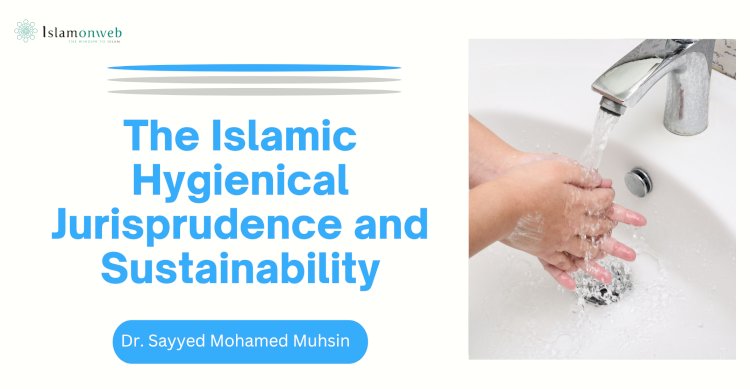


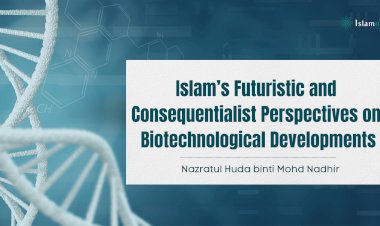

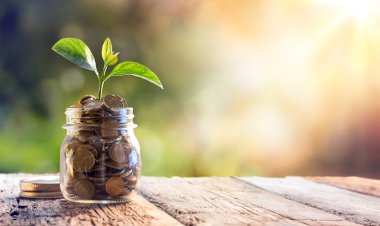
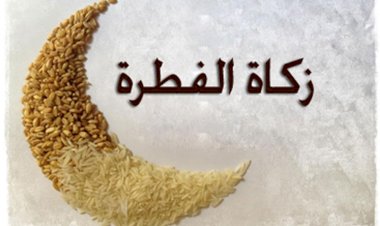

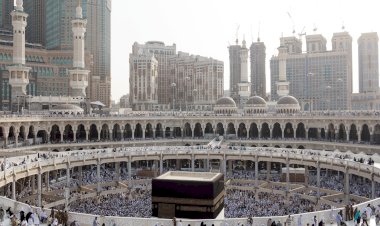














Leave A Comment